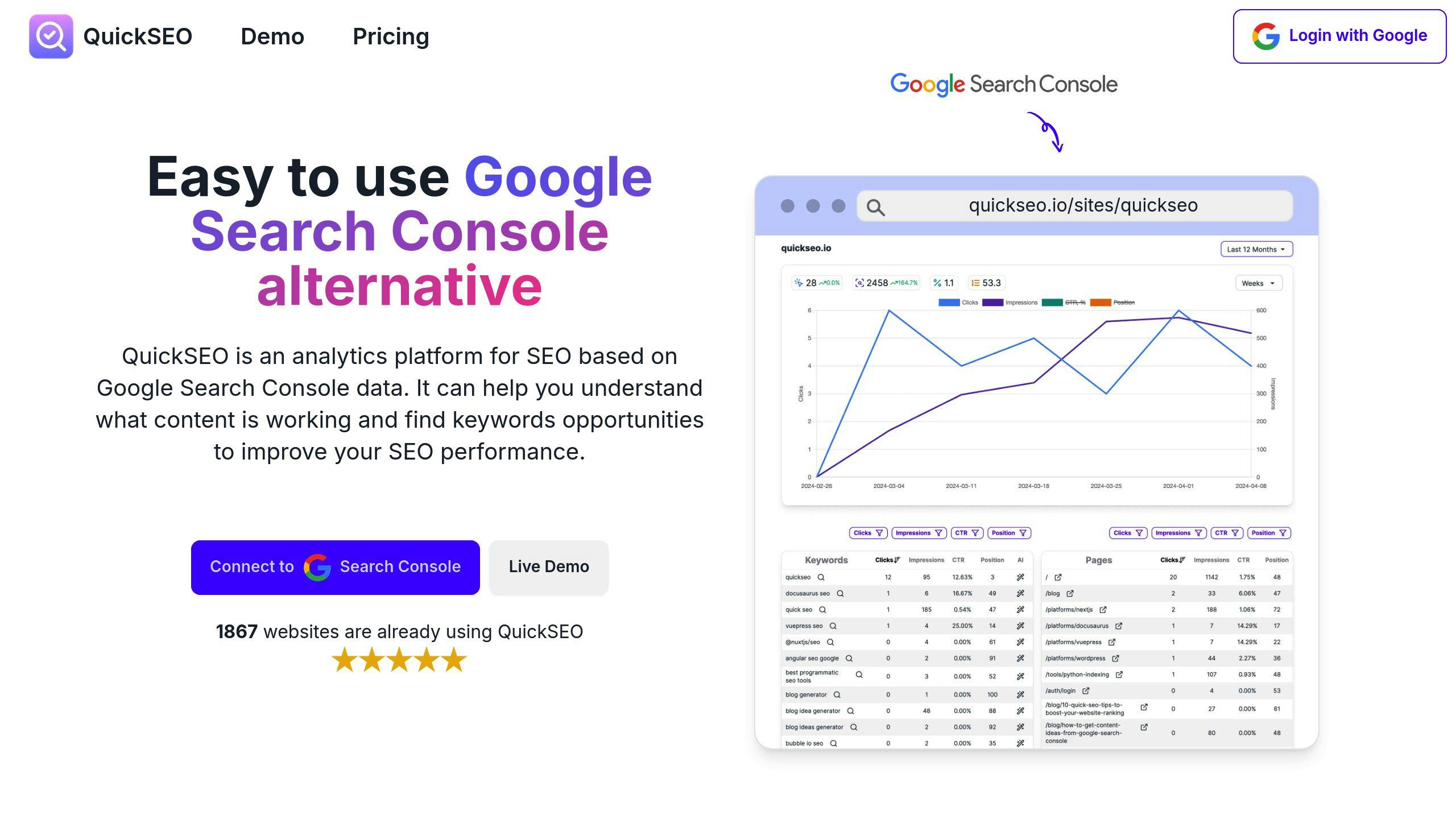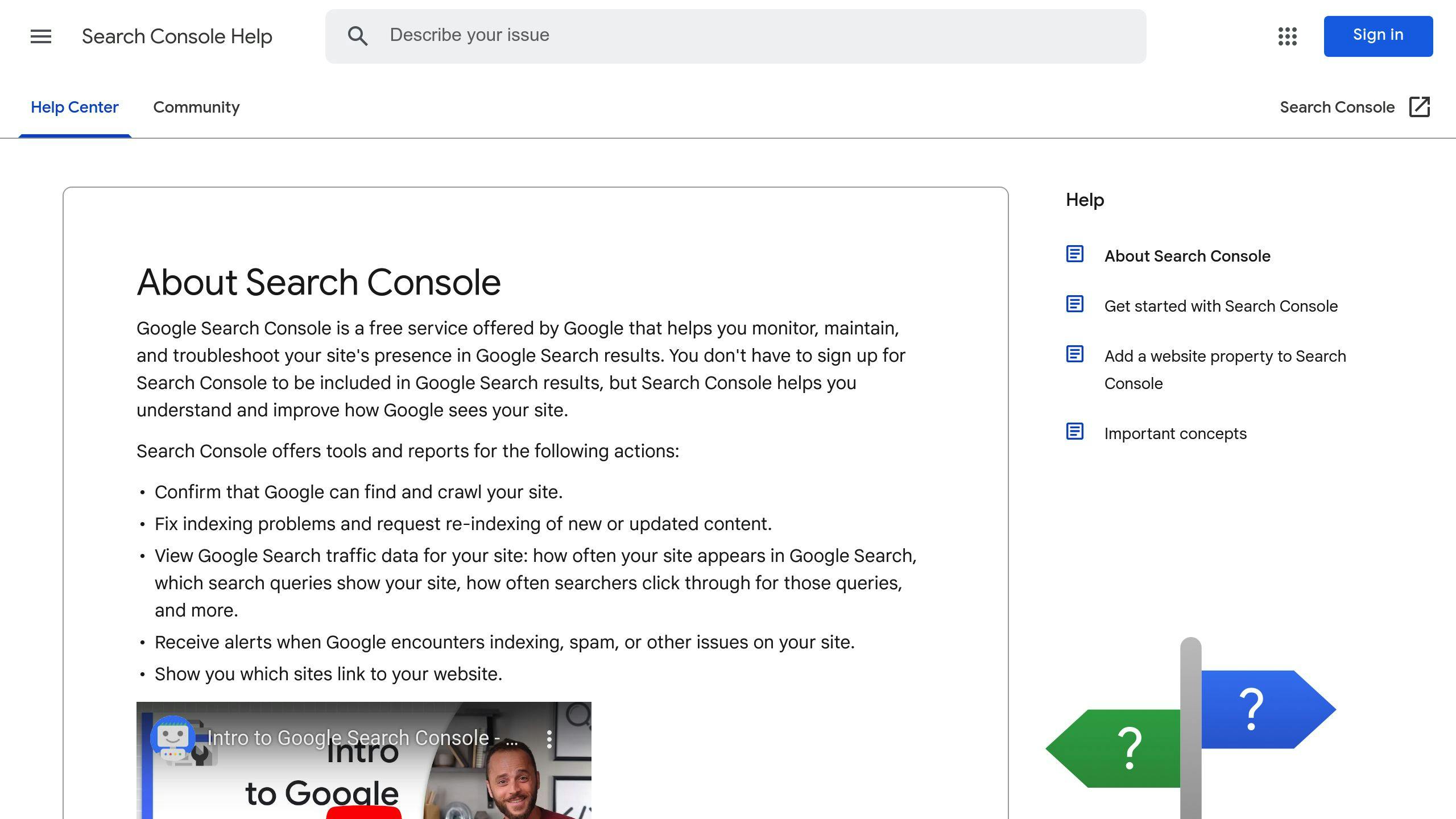
Managing SEO for multiple websites is challenging but essential for maintaining rankings and reaching diverse audiences. This guide provides actionable steps to handle common issues like duplicate content, keyword strategy, and local SEO for multiple locations.
Start by auditing your current SEO setup, centralizing tracking, and aligning strategies across all sites. With consistent optimization and the right tools, you can improve rankings and strengthen your online presence.
Managing SEO for multiple websites comes with its own set of challenges. Here’s how to handle it effectively.
Keeping everything in one place is crucial when managing SEO for several sites. Tools like Google Search Console offer insights into:
Bringing data from various sources into a single dashboard helps you identify and address issues faster.
After setting up centralized tracking, focus on optimizing on-page elements across all sites. Consistency is key here.
| Element | Best Practice |
|---|---|
| Meta Tags | Write unique, keyword-focused descriptions using templates for efficiency. |
| Headers | Maintain a clear and standardized H1-H6 structure across all pages. |
| Schema Markup | Add and validate schema types relevant to your content and audience. |
Regular audits ensure that SEO guidelines are followed and content remains unique.
While consistency matters, it’s equally important to avoid duplicate content issues that can hurt rankings. Here’s how:
1. Use Canonical Tags
Canonical tags help search engines understand which version of a page is the primary one when similar content exists across domains.
2. Create Unique Content
Tailor content for each site by:
3. Conduct Regular Content Reviews
Review and update content frequently to identify and fix duplicates before they impact your rankings.
Handling keywords across multiple sites demands a well-thought-out plan to avoid competing with yourself. Develop unique keyword strategies for each site while keeping the overall brand message consistent.
| Domain Type | Strategy |
|---|---|
| Main Domain | Target broad industry terms to establish your brand as an authority |
| Location Sites | Focus on city or region-specific keywords to attract local audiences |
| Product Sites | Optimize for specific product-related terms to reach niche markets |
Use tools like Google Search Console to track keyword rankings and identify potential overlaps. Once you've sorted out your keyword strategy, shift your focus to optimizing for local audiences - especially important if your sites cater to different geographic regions.
Local SEO requires a tailored plan for each location-based website. Here's how you can approach it effectively:
Local Business Schema
Add schema markup to highlight details like address, phone number, and operating hours. This helps improve your visibility in local searches.
Geo-Targeted Content
Create pages specific to each location. These pages can include:
Review Management
Use a centralized system to monitor reviews across all locations. This ensures a consistent brand image and helps address customer feedback quickly.
Once your local SEO is in place, you can solidify your presence further by building strong backlinks.
Strengthening each site's authority requires a strategic approach to link-building. Here's a breakdown of the types of links to focus on:
| Link Type | Purpose | Activities |
|---|---|---|
| Local Citations | Improve geographic relevance | Add listings in directories and local chambers of commerce |
| Industry Links | Build credibility | Join trade associations or collaborate with industry-specific organizations |
| Community Links | Increase local visibility | Sponsor local events or partner with community groups |
Prioritize high-quality, locally relevant backlinks to boost both your domain authority and your visibility in local search results.
"Training location managers on the value of positive online reputation and providing resources for encouraging reviews and social media management is crucial for maintaining consistent local SEO performance across multiple sites." [1]
To effectively manage SEO across multiple websites, having the right tools is just as important as following best practices. These tools help tackle challenges like duplicate content, tracking performance across domains, and aligning keyword strategies.

QuickSEO simplifies managing multiple websites with its all-in-one dashboard. It uses AI to consolidate SEO data and streamline workflows:
| Feature | What It Does |
|---|---|
| Performance Analytics | View rankings and metrics for all your domains in one place |
| AI Content Generation | Suggests content ideas based on each site's performance |
| Smart Keyword Filtering | Spots keyword opportunities while avoiding cannibalization across domains |

Google Search Console is a must-have for monitoring search performance and fixing technical issues across your websites. Pair it with Bing Webmaster Tools to gain additional insights, especially for regions where Bing has a strong presence.
Adding a mix of specialized tools can take your multi-site SEO management to the next level:
| Tool | Purpose | Standout Feature |
|---|---|---|
| Clearscope | Content Optimization | Offers AI-based suggestions for improved content |
| Screaming Frog | Technical SEO Audits | Crawls multiple domains to detect technical issues |
| AgencyAnalytics | Local SEO Management | Monitors and reports SEO metrics for various locations |
For broader tasks like keyword research and backlink analysis, platforms like SEMrush and Ahrefs are excellent additions to your toolkit. Together, these tools cover the essential aspects of managing SEO across multiple sites effectively.
Managing SEO for multiple sites requires a clear strategy, dependable tools, and a unified approach to tracking and analyzing data. Consistent on-page optimization, coordinated keywords, and localized SEO efforts are essential to maintaining strong search rankings for all your sites.
With the right tools and a structured approach, you’re ready to tackle multi-site SEO effectively. Let’s break it down into actionable steps:
Managing multi-site SEO is an ongoing process. By staying consistent and refining your efforts based on data, you’ll be able to maintain strong and reliable SEO results across all your sites.